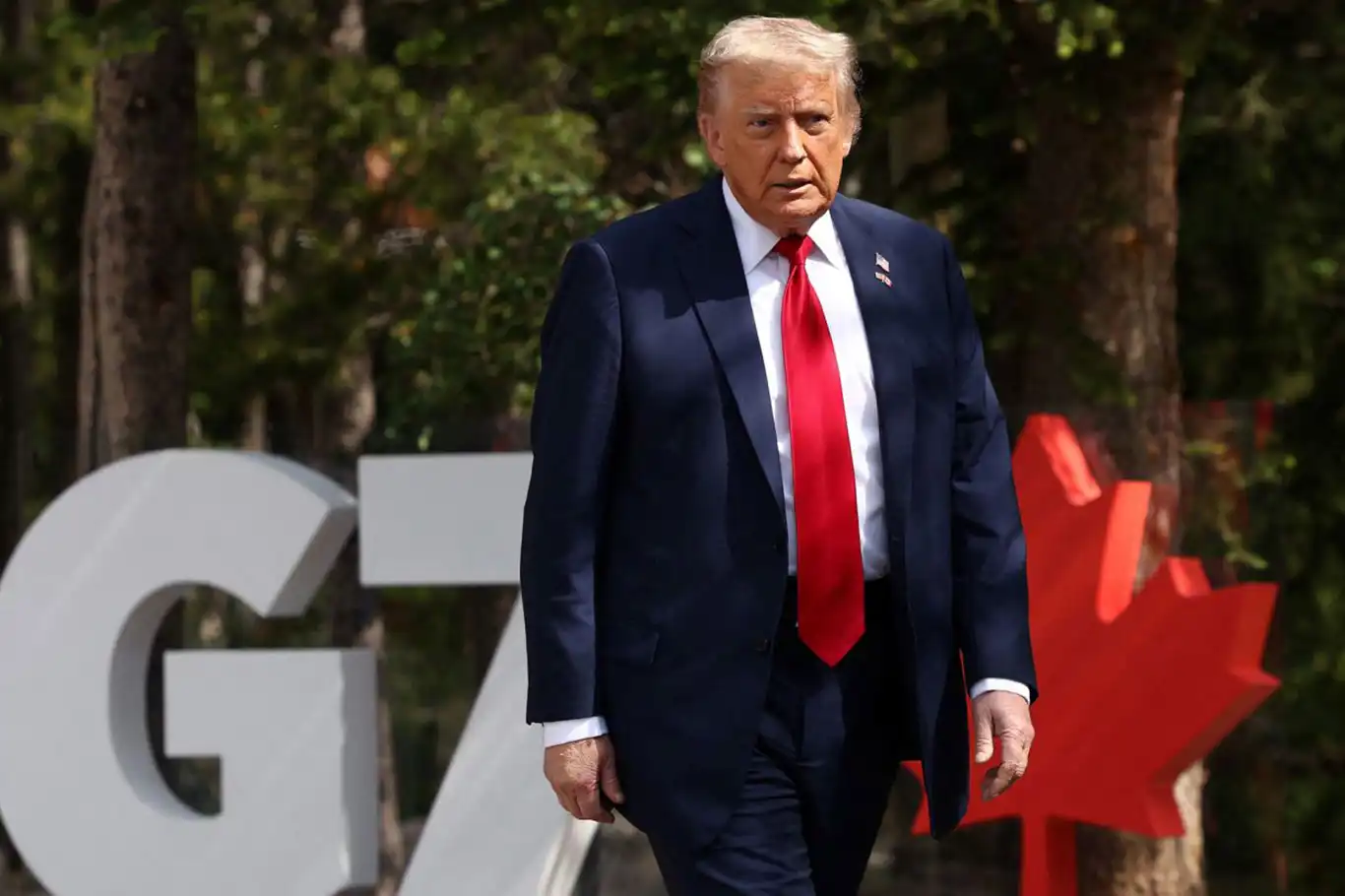Trump abruptly cuts G7 summit attendance amid mounting Middle East tensions


The U.S. President Donald Trump made a startling departure from the Group of Seven (G7) summit early Monday evening, citing the rising threat of war between Israel and Iran as justification for exiting the event prematurely.
His departure—following dinner with other world leaders—comes just hours after he shared a provocative directive online, urging inhabitants of Tehran to “immediately evacuate.”
The president’s statement, posted on Truth Social, was backstopped by White House Press Secretary Karoline Leavitt, who confirmed plans for an early return after discussions intensify in the Middle East. “Because of what’s going on in the Middle East, President Trump will be leaving tonight,” Leavitt announced.
Before exiting the summit, Trump claimed that U.S. forces were not responsible for the initial Israeli strikes on Iran, yet he ominously hinted that the U.S. “will be doing something” upon his arrival back in Washington—raising alarm about a potential escalation.
Though Trump has, in the past, spoken favorably of diplomacy, his recent praise of Israeli military moves—coupled with warnings to Iran—have been interpreted as a buildup to a more active American role in the conflict.
“It’s painful for both parties … but I’d say Iran is not winning this war, and they should talk … before it’s too late,” Trump told reporters, echoing support for Israeli strikes.
Behind the scenes, the White House continues to insist the U.S. military posture remains purely defensive. Spokesperson Alex Pfeiffer emphasized that American forces in the region remain on alert but have not crossed the threshold into offensive operations. “We will defend American interests,” he stated.
Yet reports from Israeli media, including Channel 14, suggest U.S. involvement in recent strikes on Iranian targets—claims not independently verified, but nonetheless fueling Iranian criticism of Washington’s role.
In a clear message to Iran, Secretary of Defense Pete Hegseth announced additional U.S. military deployments to the CENTCOM region. New assets include two U.S. Navy destroyers and THAAD missile-defense batteries, ostensibly aimed at shoring up Israeli defenses but viewed by many in Tehran as part of a larger U.S.–Israeli strategy to escalate the conflict. (ILKHA)
LEGAL WARNING: All rights of the published news, photos and videos are reserved by İlke Haber Ajansı Basın Yayın San. Trade A.Ş. Under no circumstances can all or part of the news, photos and videos be used without a written contract or subscription.
The Islamic Revolution Guard Corps (IRGC) announced on Tuesday that it had launched a new, intensified wave of missile strikes against key Israeli military and intelligence installations, striking deep into the heart of the Israeli regime's command infrastructure.
Nasser Medical Complex, the last major hospital with an operational intensive care unit (ICU) in southern Gaza, is on the brink of collapse as Israeli military evacuation orders and expanding “red zones” isolate it from the population it serves, medical staff and humanitarian organizations warn.
Iran’s Permanent Representative to the United Nations, Ambassador Amir Saeid Iravani, delivered a forceful address at the 79th Session of the UN General Assembly on Monday, condemning recent Israeli attacks on Iranian territory and vowing that such acts "will not go unpunished."
In yet another horrific episode of Israel’s ongoing genocidal war on Gaza, at least 50 Palestinians were martyred and hundreds more severely injured Tuesday morning when Israeli occupation forces opened fire on civilians waiting for humanitarian aid in the southern city of Khan Younis.